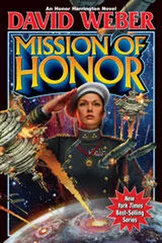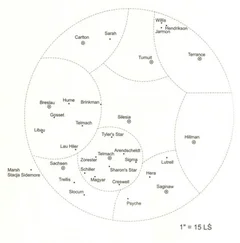Victor
Victor had never been into the Old Quarter before. He'd skirted the edges of it often enough, and gone through it in public transport capsules. But this was the first time he'd actually walked through the streets.
If the word "streets" could be used at all. Urban planners, following the jargonistic tendencies of all social sciences, often preferred the term "arteries" to refer to public thoroughfares. The euphemism, applied to the Old Quarter, was no euphemism at all. Except for being square in cross-section rather than round, and the fact that human beings passed through them instead of blood corpuscles, the "streets" were as complex, convoluted, tortuous and three-dimensional as a body's circulatory system. More so, really, since the clear distinction between arteries and veins was absent here.
Victor was hopelessly lost within minutes. In that short space of time, the woman leading him had managed to take him through more streets than he could remember – including four elevator transits, three occasions when they passed through huge underground "plazas" filled with vendors' booths and shops, and even one instance in which she strode blithely through some kind of lecture or public meeting and exited by a door in the back next to the toilets. The only logic to her route that Victor could follow was that the "streets" always got narrower, the ceiling lower, and the artificial lighting dimmer.
At least I won't have to worry about being followed.
As if the thought had been spoken aloud, the women ahead of him cocked her head and said: "See? This is how you do it." She chuckled throatily. "Anybody asks, you just went to get laid. Who's going to prove otherwise?"
Suddenly, she stopped and turned around. The motion was so abrupt that Victor almost ran into her. He managed to stop, but they were now standing practically nose to nose. Well – nose to forehead. Like most Mesan genetic slaves except the heavy labor and combat breeds, the woman was very small.
She grinned up at him. The grin had a generic similarity to the professional leer she had bestowed upon him in the transport capsule, but there was more actual emotion in it. Humor, mainly.
Like all solemn and dedicated young men who don't suffer from extreme egotism, Victor suspected that the humor was at his expense. The woman immediately proved him right.
"You don't even have to fake it," she announced cheerfully. "If you want it kinky, of course, I charge extra. Unless it's too kinky, in which case I won't do it at all."
Victor liked her grin. It was almost friendly, in a rakish sort of way. But he still stammered out another refusal.
"Too bad. You would have enjoyed it and I could have used the money." She eyed him speculatively. "You sure?" The grin grew more rakish still. "Maybe a little bondage? Not—"
Here came the throaty chuckle. "—that you don't look like you're tied up in knots already."
Fortunately, Victor didn't have to think up a suitable rejoinder to thatremark. The woman just shrugged, turned, and got under way again.
They spent another few minutes following the same kind of twisted route. Two minutes into it, Victor remarked that he was quite certain they had shaken whoever might have been tailing him from the hospital.
The woman's reply came with a snort: "Who's trying to? This is how you get to where I live, wonderboy." Again, that throaty chuckle. "I'm not in the business of shaking tails that way."
The chuckle became an outright laugh. For the next minute or so, leading him through the crowded "public arteries," the woman ahead of him put on a dazzling display of shaking her tail. Long before she was done, Victor was beginning to deeply regret his refusal.
Duty first! Discipline!
But he kept the thought to himself. He could well imagine her response, and the rakish grin and chuckle which would accompany it.
Victor spent the remaining minutes of their trek simply studying his surroundings. Chicago's Old Quarter – or "the Loop," as it was sometimes called, for no reason that anyone understood – was famous from one end of the Solarian League to the other.
Notorious, rather, in the way that such largely-immigrant neighborhoods have been throughout history. Dens of vice and iniquity, of course. You can buy anything in the Loop . But there was also a glamorous aura surrounding the place. Artists, writers and musicians abounded, filling the Old Quarter's multitude of taverns and coffeehouses. ( Real coffee – the true Terran strain. Victor had tried some once, but found he didn't like it. In this, as in many things, the earnest young revolutionary from the slums of Nouveau Paris was more conservative than any decadent elitist.) The artists were invariably "avant-garde" and had the poverty to prove it. The writers were mostly poets and enjoyed a similar income. The musicians, on the other hand, often did quite well. Except for opera, the Loop was the center of Chicago's musical night life.
Rich or poor, the culturally inclined habitués of the megametropolis' Old Quarter rubbed elbows with their more dangerous brethren. Over the centuries, the Loop had become the center of the Solarian League's criminal elite as well as every brand of political radical.
Chicago drew all of them like a magnet, from everywhere in the huge and sprawling Solarian League. But since respectable Solarian society generally refused to acknowledge the existence of such things as widespread poverty and crime, the bureaucrats who were the real political power in the League saw to it that the unwelcome riffraff was kept out of sight and, and much as possible, out of mind. As long as the immigrants stayed in the Loop, except for those who worked as servants, they were generally left alone by the authorities. Within limits, the Loop was almost a nation unto itself. Chicago's police only patrolled the main thoroughfares and those sectors which served as entertainment centers for the League's "proper" citizens. For the rest— let them rot.
In some ways – poverty, danger, congestion – the Loop reminded Victor of the squalid Dolist slums which had grown like a cancer during the long reign of Haven's Legislaturalist regime. But only up to a point. The Dolist slums in which Victor had been born and spent his entire life until he volunteered to join State Security were grim, gray and sullen places. That was beginning to change, as popular fervor for the Revolution and the war against the Manticoran elitists swelled and Victor's class of people began to accept the necessity for discipline. Still, the Dolist quarters of the People's Republic of Haven were slums .
Victor suspected that the Loop was even more dangerous than the slums of Haven. Yet, there was a key difference. The Loop was a ghetto , not simply a collection of tenements. And, like many ghettoes throughout history, there was a real vibrancy to its life. Beneath the grime and the poverty and the sneers of respectable society, the Loop possessed a certain genuine verve and élan.
Alas, that dashing joie de vivre extended to pickpockets as well. By the time Victor reached their destination, he had lost his wallet. He did manage to hang onto his watch, but it was a close thing.
When the woman reached her apartment, she began punching in the codes to unlock the door. It was a time-consuming process, given the number of locks. She even had a key for one of them – a real, genuine, antique metal key. As he waited, Victor suddenly realized that he didn't know her name. He was deeply embarrassed by his lapse into elitism.
Читать дальше












